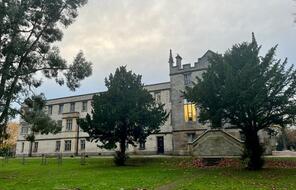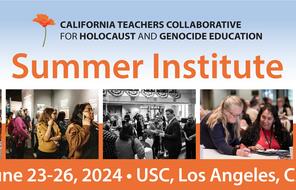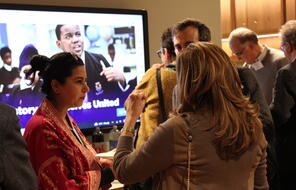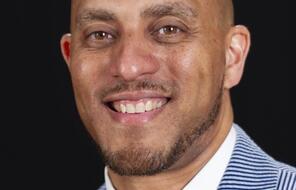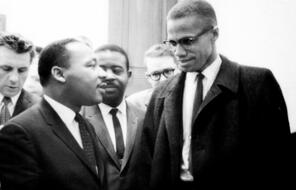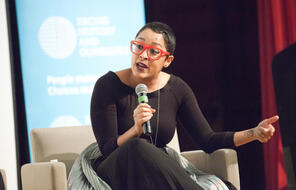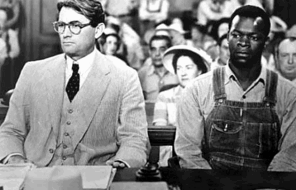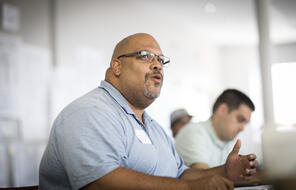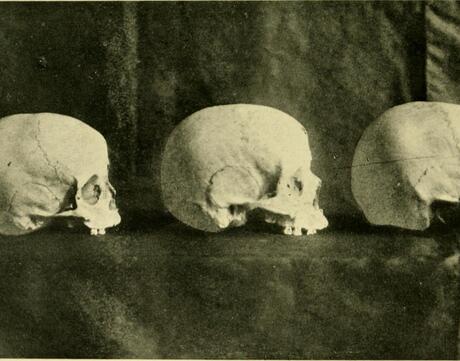
Disrupting the Legacies of Eugenics
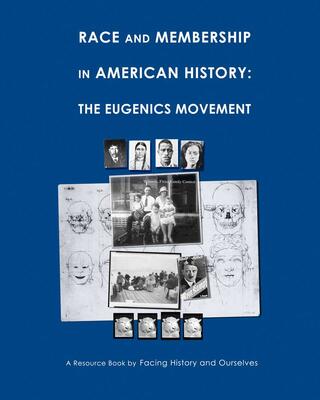
Race and Membership in American History: The Eugenics Movement
This year marks the 100th anniversary of the Second International Eugenics Congress—one of a series that took place between the years of 1912 and 1932 where global leaders in academia, policy, and medicine came together to advance their view of humanity. At this time, eugenics was a new branch of scientific inquiry that advanced the notion that some human groups are superior to others and that, ultimately, the inferior groups ought to be eliminated from the population through various means. It was at this second gathering—held at the American Museum of Natural History in New York City—that a political program centered around “eliminating the unfit” and encouraging reproduction only amongst particular populations was articulated on the global stage and operationalized in policy. Eugenics would be leveraged to give a host of oppressive policies like anti-miscegenation and forced sterilization laws a veneer of scientific legitimacy. In connection with these events, a number of parallel practices surrounding immigration and even intelligence testing gained increasing currency, leaving an enduring mark on a wide variety of peoples and societies around the world.
In an effort to elevate this global history and illuminate the continuing consequences of eugenics in contemporary society, an international alliance has formed to provoke learning and dialogue about these pressing issues. The “From Small Beginnings…” project is facilitating a program of international reflections in cities across North America and Europe; locations in India and Japan; and even “transnational” discussions on these legacies. In addition, the leaders of the project are coordinating the development of an in-person and virtual exhibition, a podcast series, a journal, and a “eugenics atlas.” This project is being led by a global group of academics, teachers, artists, activists, and other community stakeholders united in a desire to “[address] eugenic legacies of the past and [interrupt] the future promulgation of this malignant ideology.” Another core objective of this group is to forge the International Legacies of Eugenics Network for “transnationally addressing the continuing and resurging shadows of eugenics today.”
The next offering in their yearlong roster of events is a free, three-part virtual conference titled Legacies of Eugenics in New England which will be held on September 22nd, October 19th, and November 16th. This event is being sponsored by the Hutchins Center at Harvard University and will feature Hutchins Center Director and Facing History Board of Scholars member Dr. Henry Louis Gates, Jr.
Despite the emphasis of this particular conference on New England’s history, its content will be relevant to people who live and teach beyond the six New England states. Among the themes that will be addressed are the role of eugenic thinking in research at Harvard and Yale Universities, including Harvard’s medical school and museums. Due to the roles of elite institutions like Harvard and Yale in shaping prevailing understandings of scientific truth beyond their respective campuses, this New England-focused conference has implications for people around the world.
Alongside this three-part conference in New England, members of this network are also offering a free virtual conference titled Dismantling Eugenics: A Convening from September 26th through October 2nd. Sponsored by NYC-adjacent Rutgers University, this event is meant to act as a “counter-centennial” to the Second International Eugenics Congress that took place in New York City one hundred years ago. Additional events are also planned in countries including England, France, Poland, and Japan later this fall.
Whether you are able to make it to one of these events this season or simply take the time to learn about the history of eugenics for the first time, let us know how you are exploring these issues on your own or with students in the comments!
Don't miss out!
- download classroom materials
- view on-demand professional learning
- and more...


